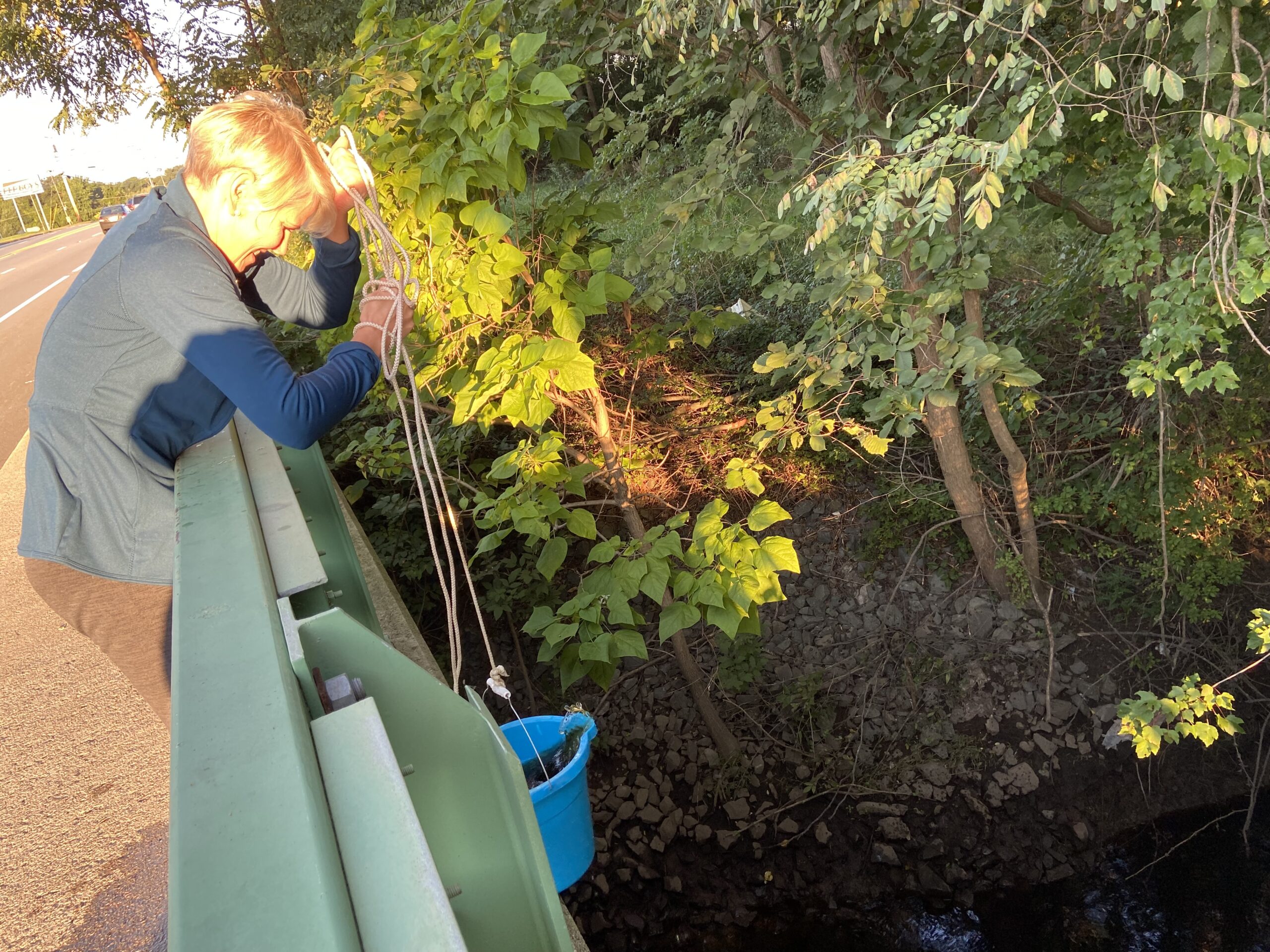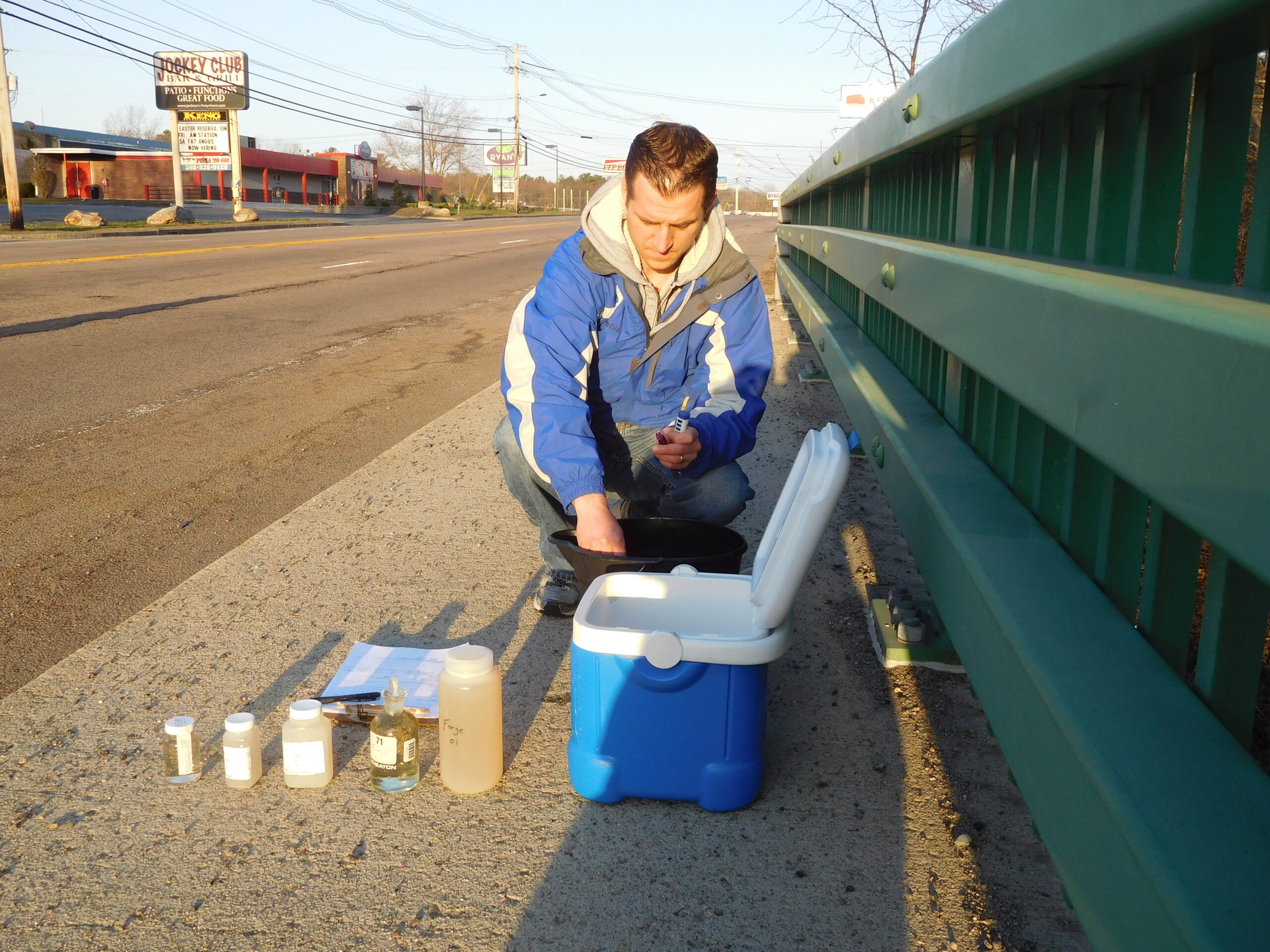Our most recent sampling summary spreadsheets showing the results for April through September are available here and at the Water Quality Monitoring TRWA website home page tab if you click on the sample bottles picture or link in the Documents section.
September was our wettest sampling day (highest streamflow) this season and like July, another wet sampling day we measured large bacteria water quality standards violations at all of our 20 monitoring locations. This means a lot more improvement is needed in management of stormwater pollution in the watershed.
Despite the extra dilution of wastewater treatment plant effluent by the high September streamflow we still saw some relatively high nitrogen levels underscoring the need to finish the Taunton WWTP nitrogen removal upgrade and the need for permit reissuance with nitrogen removal upgrade schedules for Somerset and Fall River.
A recent Southeast New England Coastal Watershed Restoration Program (SNEP) newsletter mentioned that MassDEP’s two continuous monitoring buoys in Mount Hope Bay are now measuring more water quality violations in wet years. Before 4 of the 5 up river wastewater treatment plants upgraded the situation was reversed with poorer water quality measured in the Bay during drier years. This underscores as does our monitoring the need to complete nitrogen removal upgrades for all the watershed’s 7 major treatment plants and for much better regulation and treatment of stormwater. It also shows the need for reducing and finally eliminating Fall River’s combined sewer overflows.


